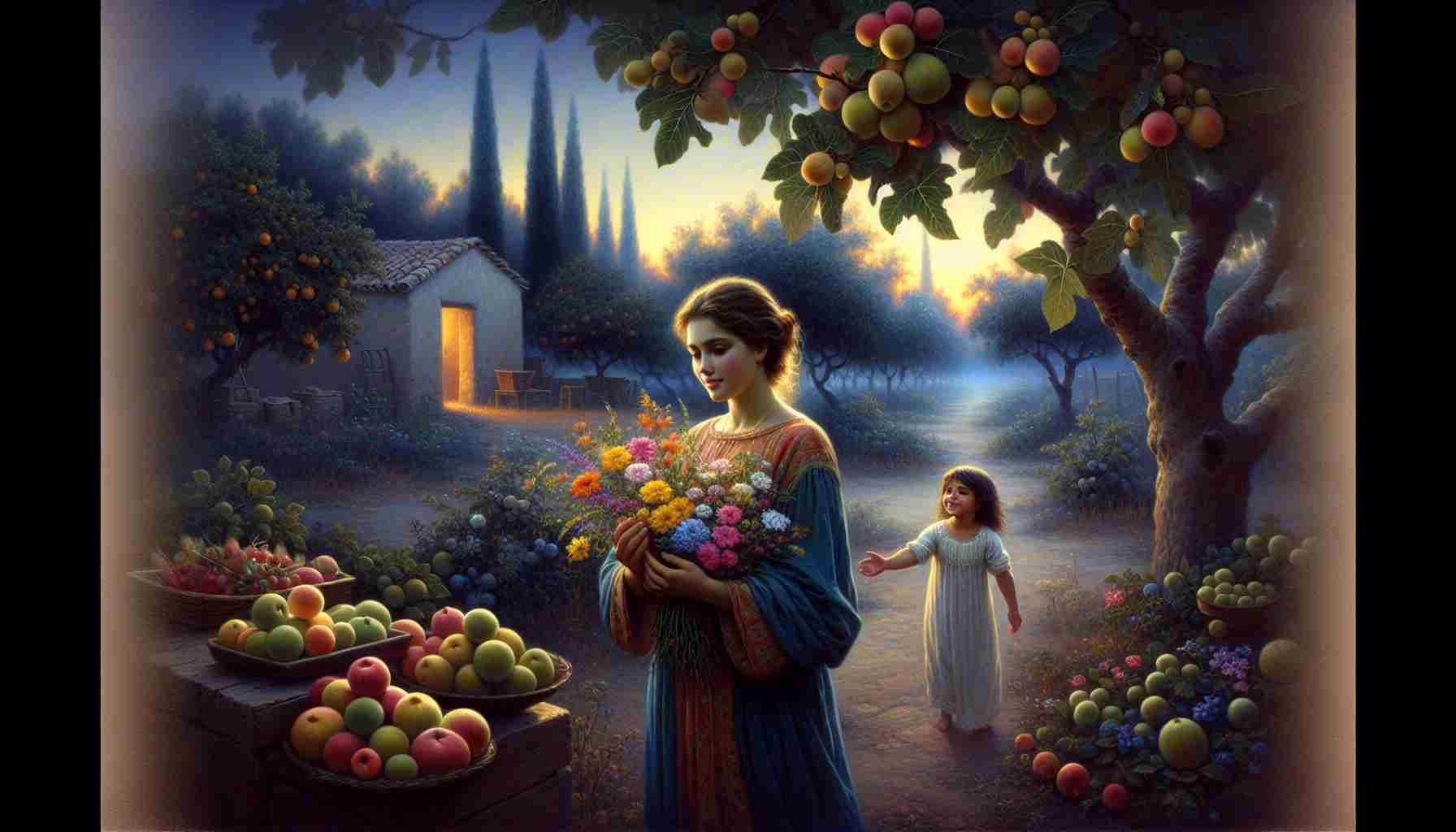

The letter was still on the kitchen table, unopened, when Miriam walked in. She saw the handwriting — Chana’s, her sister — and her heart clenched so sharply it was as if the world had turned against her. It had been months since the fight, the words said and unsaid etching lasting scars between them. Miriam gripped the edge of the counter just to stay standing.
She told herself she wouldn’t read it. She wouldn’t be tricked into reopening old wounds. She had humiliated herself by caring too much once already. Family was supposed to be your shelter, wasn't it? And yet, here she stood, aching deeper than she thought possible.
The afternoon sunlight slanted through the window, spilling golden shards onto the worn tile. Outside, birds sang without apology. Life pressed forward, indifferent to broken hearts.
Miriam leaned her head against the cabinet door. There, in the hush of the house, Shabbat candles sat untouched on the windowsill — waxy reminders of peaceful nights spent singing together, once. She closed her eyes, and before she understood why, the verses of Tehillim rose in her mind: “He heals the brokenhearted and binds up their wounds.”
Tears brimmed and spilled freely down her cheeks. She realized how long it had been since she had asked G-d into her pain — not with words, but with lintels of longing she thought too bitter to bridge. G-d, where are You in this ache?
Miriam moved slowly, picking up the letter. Her fingers trembled as she broke the seal.
Chana's handwriting was messier than she remembered, as if her sister had been too afraid to sit still. The words weren’t grand or eloquent. Just a simple plea: I’m sorry. I miss you. I was wrong.
Miriam sank into a chair, the hardness of it grounding her. A forgotten memory flickered to life: two little girls in the back garden, digging trenches in the dirt to make "rivers," giggling as they splashed. In all the years since, so much had shifted — growing up, growing apart — but the roots were still entwined deep beneath the surface.
Perhaps wounds did not mean the family tree was dead. Perhaps it only meant some branches needed time to heal.
As she sat there, sunlight stretched a little warmer through the window, brushing her skin like a mother’s touch. This, too, was a blessing — the slow, stubborn hope that rose even after storms.
Miriam bowed her head, whispering the only prayer she could manage: Thank You. Thank You that love can shape itself into something new. Thank You for believing in broken things made whole.
She picked up a pen, her hand steady now, and wrote back with tears, with trembling, with forgiveness. It wasn’t eloquent either. Just a tiny seed tucked into the soil of tomorrow:
"Come home."
—
Torah and Tanakh Verses for Reflection:
The letter was still on the kitchen table, unopened, when Miriam walked in. She saw the handwriting — Chana’s, her sister — and her heart clenched so sharply it was as if the world had turned against her. It had been months since the fight, the words said and unsaid etching lasting scars between them. Miriam gripped the edge of the counter just to stay standing.
She told herself she wouldn’t read it. She wouldn’t be tricked into reopening old wounds. She had humiliated herself by caring too much once already. Family was supposed to be your shelter, wasn't it? And yet, here she stood, aching deeper than she thought possible.
The afternoon sunlight slanted through the window, spilling golden shards onto the worn tile. Outside, birds sang without apology. Life pressed forward, indifferent to broken hearts.
Miriam leaned her head against the cabinet door. There, in the hush of the house, Shabbat candles sat untouched on the windowsill — waxy reminders of peaceful nights spent singing together, once. She closed her eyes, and before she understood why, the verses of Tehillim rose in her mind: “He heals the brokenhearted and binds up their wounds.”
Tears brimmed and spilled freely down her cheeks. She realized how long it had been since she had asked G-d into her pain — not with words, but with lintels of longing she thought too bitter to bridge. G-d, where are You in this ache?
Miriam moved slowly, picking up the letter. Her fingers trembled as she broke the seal.
Chana's handwriting was messier than she remembered, as if her sister had been too afraid to sit still. The words weren’t grand or eloquent. Just a simple plea: I’m sorry. I miss you. I was wrong.
Miriam sank into a chair, the hardness of it grounding her. A forgotten memory flickered to life: two little girls in the back garden, digging trenches in the dirt to make "rivers," giggling as they splashed. In all the years since, so much had shifted — growing up, growing apart — but the roots were still entwined deep beneath the surface.
Perhaps wounds did not mean the family tree was dead. Perhaps it only meant some branches needed time to heal.
As she sat there, sunlight stretched a little warmer through the window, brushing her skin like a mother’s touch. This, too, was a blessing — the slow, stubborn hope that rose even after storms.
Miriam bowed her head, whispering the only prayer she could manage: Thank You. Thank You that love can shape itself into something new. Thank You for believing in broken things made whole.
She picked up a pen, her hand steady now, and wrote back with tears, with trembling, with forgiveness. It wasn’t eloquent either. Just a tiny seed tucked into the soil of tomorrow:
"Come home."
—
Torah and Tanakh Verses for Reflection: